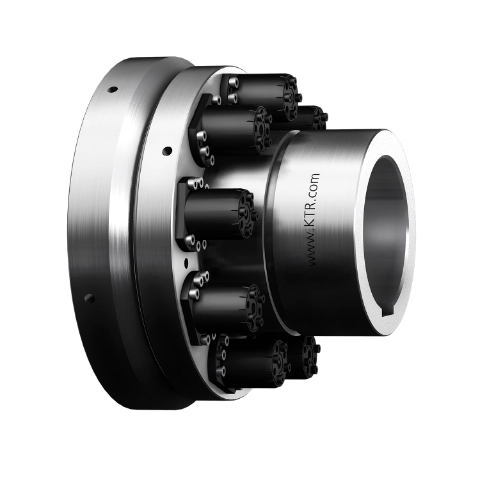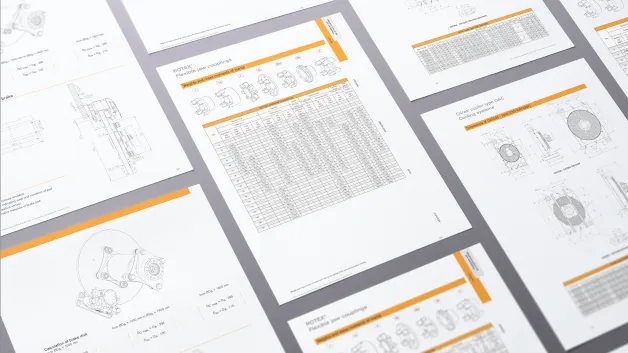
The overload coupling KTR-SI FRE is an idle rotation safety coupling with flange type to connect toothed belt pulleys or sprockets.
Our idle rotation overload coupling (load-separating) with flange type can be combined with our ROTEX elastomer couplings, GEARex all-steel gear couplings or RADEX-N steel laminae couplings. Special versions of this overload coupling (e. g. flange-to-flange) are available on request.
Features
idle rotation overload coupling
hardened surfaces
maintenance-free
precision ±15 %
corrosion-protected
Product Details
Specifications for: KTR-SI FRE as a flange type
Further information and specifications can be found in our online catalogue.

CAD drawings
Find 2D CAD drawings for download here.
You need 3D drawings instead? Then please visit our 3D CAD library.
